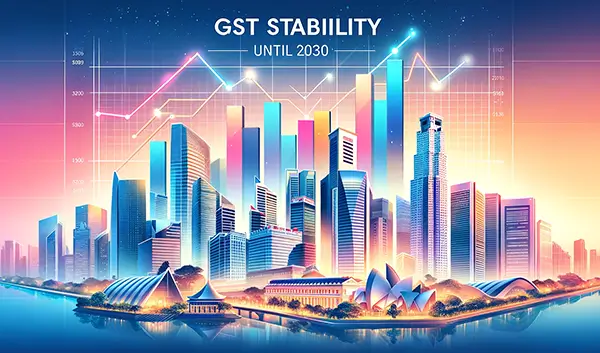Singapore’s Deputy Prime Minister and Finance Minister Lawrence Wong, during a parliamentary debate on Budget 2024 on February 28, 2024, has firmly stated that there will be no need for further increases in the Goods and Services Tax (GST) until 2030. This declaration comes in light of inquiries from Non-Constituency Member of Parliament (NCMP) Hazel Poa regarding the necessity for further GST hikes within this timeframe to support anticipated higher government expenditures.
Addressing Poa’s concerns, Wong clarified that the current fiscal strategies and projections indicate a stable financial outlook for Singapore, negating the need for additional GST adjustments until the end of the decade. This response underscores the government’s confidence in its fiscal management and long-term planning capabilities. However, Wong also hinted at the importance of future evaluations post-2030 to determine if new fiscal measures or adjustments will be necessary to bridge any potential funding gaps.
The topic of GST’s impact on the economy was further explored when Workers’ Party MP Jamus Lim questioned the timing of recent GST increases, pondering if a postponement might have been more prudent. Wong responded by emphasizing that the effects of GST on prices are immediate but transient, asserting that these are not the primary contributors to the recent inflationary pressures. He highlighted the government’s efforts to mitigate GST’s burden on lower-income families through the Assurance Package, effectively delaying significant financial impacts for most Singaporeans for over five years.
Wong’s stance on the necessity of timely fiscal interventions reflects a broader strategy to ensure Singapore’s economic stability and sustainability. By committing to no GST hikes until 2030, the government signals its intent to maintain a balanced approach between funding essential services and managing the cost of living for its citizens. This approach not only demonstrates fiscal prudence but also a commitment to safeguarding the nation’s economic future against uncertainties, ensuring that Singapore remains on a sound financial footing for the foreseeable future.
In essence, the Singapore government’s stance on GST reflects a delicate balance between economic sustainability and social responsibility, aiming to foster a stable and inclusive growth environment as the nation navigates the complexities of the global economic landscape.


